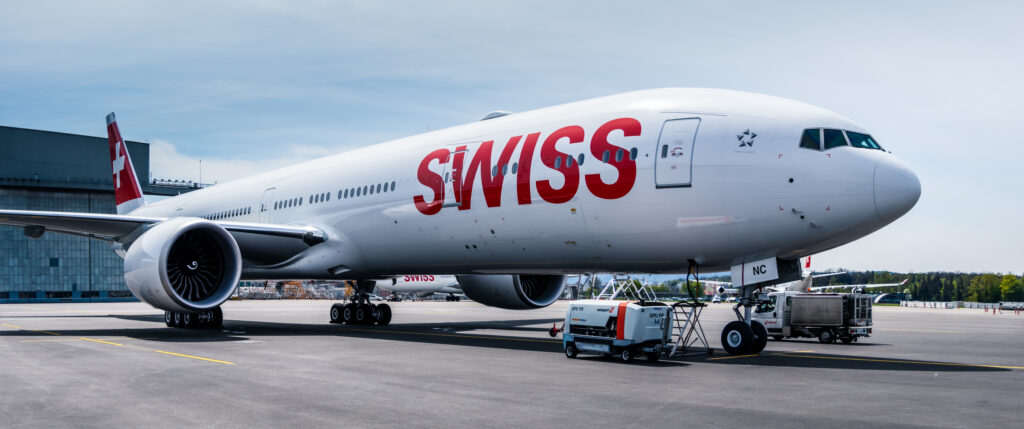Switzerland’s national airline, Swiss, has announced it will cancel around 1,400 flights between now and October. The reason is a critical lack of pilots. The airline says the cuts will affect both short-haul and long-haul routes. Flights from Zurich and Geneva to several European cities will be reduced. Some long-haul routes, including Chicago and Shanghai, will also see fewer flights. Seasonal holiday spots like Hurghada in Egypt will no longer be served during this period.
Swiss is working on ways to reduce the impact on travelers. Passengers affected by these cancellations will be rebooked on other airlines within the Lufthansa Group or through Star Alliance partners. Where rebooking is not possible, full refunds will be given. Still, many travelers may face delays, longer trips, or fewer travel options this summer.
The airline has already launched several steps to handle the pilot shortfall. These include asking some pilots to delay retirement, offering to buy back vacation days, and increasing work hours for part-time pilots. Swiss is also in talks with its pilot union, Aeropers, to make work rules more flexible and reduce fatigue-related absences. But even with these steps, the airline says it still needs about 70 more full-time pilots to meet its summer schedule.
This is not just a Swiss problem. Airlines all over Europe are struggling with the same issue. Many carriers are cutting flights or changing schedules due to a lack of pilots. In the Netherlands, KLM is having trouble staffing long-haul flights this summer, even though it has more pilots now than ever before. The airline blames a rise in part-time work and an increase in sick leave. These two factors together have caused a loss equal to about 50 full-time pilots each year. To ease the pressure, Air France is stepping in to operate some KLM flights from July to October. This includes the popular Amsterdam to New York route.
In the UK, British Airways and easyJet are fighting hard to attract new pilots. British Airways has offered to pay up to €100,000 per trainee for 60 new pilots each year. Even with this offer, the airline has had to cancel some summer routes. These include flights from London to Santorini and Mykonos, as well as other Greek and Croatian cities. EasyJet has also trimmed routes and adjusted schedules to deal with staff gaps.
The pilot shortage began during the COVID-19 pandemic. Pilot training stopped. Many older pilots retired early. Airlines reduced staff to survive the loss of travel demand. Now, as travel picks up again, there are not enough trained pilots to meet the rising need. The U.S. Federal Aviation Administration predicts that 4,300 pilots will retire each year through 2042. Europe is facing the same issue.
Boeing estimates that 674,000 new pilots will be needed worldwide in the next 20 years. Consultancy firm Oliver Wyman reports that there could be a global shortage of 80,000 pilots by 2032. In Europe alone, the shortfall could reach 19,000. These numbers show that the current crisis may last for years unless action is taken.
To solve the issue, some airlines have started to relax old rules. In some cases, they have removed strict language or nationality requirements to help more people enter training. Others are offering new training paths or support for career changes. The goal is to bring more people into the pilot pipeline as fast as possible.
What this means for travelers is simple. Flying in Europe this summer will be harder. There will be fewer direct flights, more stops, and longer layovers. Flights may be more expensive due to high demand and low supply. Experts suggest that passengers book flights as early as possible. They should also check their booking status often and allow extra time for travel between connecting flights.
For those whose flights are canceled, quick action is key. Airlines will try to rebook passengers, but the best options will go to those who respond first. Travelers should also know their rights, including their ability to ask for refunds or rebookings on partner airlines.
This summer may mark the start of a longer shift in how people travel in Europe. With pilot shortages likely to continue, passengers may need to get used to fewer flight choices, longer trips, and tighter competition for seats. The airline industry is working hard to fix the problem, but the solution won’t come overnight.


